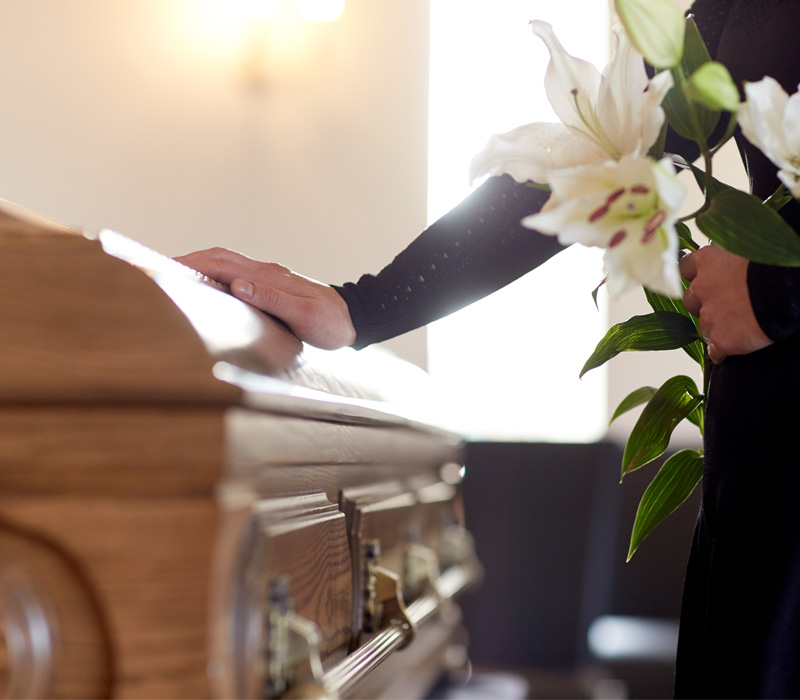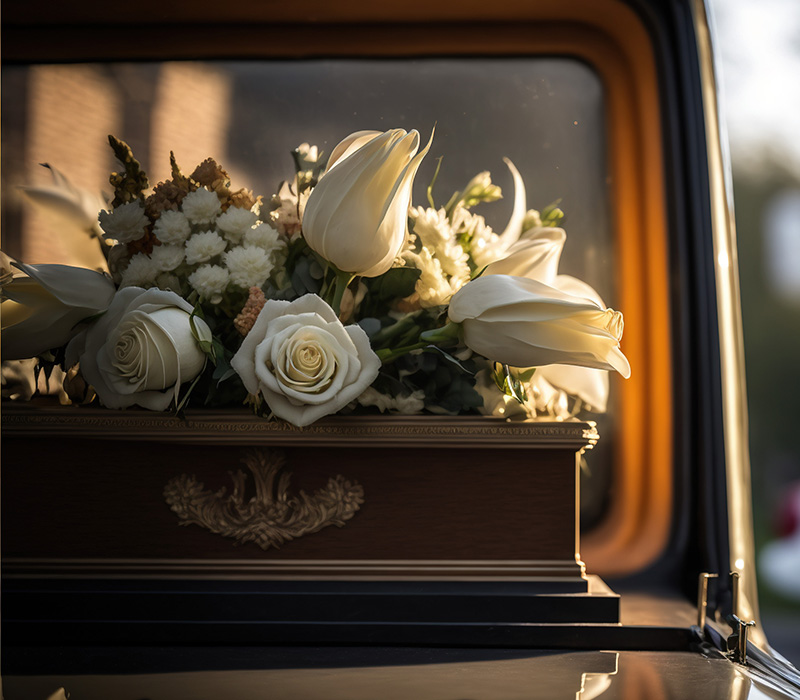Executor Duties
Being named executor for the first time, or anytime, can be a daunting task.
Being an estate executor is a legal responsibility that comes fraught with a complicated array of duties, heartaches, and headaches. It’s also extremely difficult when you are also grieving.
People are counting on you, and you can count on us.
We offer this free executor checklist to help clarify and simplify your role as an executor. We will also help you with immediate needs with our renowned AfterCare Program.
Our goal is to save you time and money while reducing stress and uncertainty by being a trusted guide and taking some burden off your shoulders.
Executor Checklist
Below is a checklist of some of the key duties and responsibilities of an Executor to wind up the affairs of a deceased person.
PART 1: BEFORE DEATH – “Pre-Planning”
Should a friend or loved one wish to appoint you as their Executor, the more preparation you do prior to their death, the easier it will be for you to carry out your duties. You should sit down with your friend / loved one to understand their financial affairs, the family situation and get guidance on any potential conflicts and issues. If you can, you should get written information on the following:
- His/her financial situation – what he/she owns and owes and
monthly income and living needs, - how property is titled,
- any insurance policies (employment group life insurance and
private insurance), - any special valuable assets – what they are worth, where they
are located - pension information – what survivor pensions might be
received and how much - bank account statements,
- investment statements,
- key persons contact info – family and friends, pastor/priest/rabbi, funeral director, estate lawyer, investment advisor, insurance agent, tax accountant
In addition, you’ll want to enquire about the following:
Care of loved ones
To help your friend/loved one, you’ll want to make sure that someone they trust is appointed their representative under a Personal Directive. This agreement empowers the representative with authority to make personal care and healthcare decisions on his/her behalf. This can be helpful to ease issues during the last part of their life. They will also be required to have an Enduring Power of Attorney. However, as Executor, you may or may not be involved with these decisions as these end when a death occurs
Access to Funds to pay bills and meet living needs of Dependent Persons
Prior to death, you’ll want to make sure that loved ones have an ability to pay bills and withdraw funds to support dependent loved ones. There should be bank accounts or brokerage accounts with sufficient funds to meet needs. For accounts solely in their name, there should be an Enduring Power of Attorney to access monies. For joint accounts, the joint owner will have access to monies.
On death, bank accounts and brokerage accounts registered only in the name of the deceased will become frozen. As the Executor, you want to make sure that on death there’s at least one year’s worth of funds available to meet last expenses and the needs of loved ones. If there’s life insurance that is “in force”, the death benefit will be paid to the named beneficiary but it can take a few months before this occurs.
Documents
As the Executor, you’ll want to get the following documents:
- Will and any Codicils
Your appointment as Executor will likely come through the Will. As such, you want to get hold of a copy (and know where the originals are located) of the Will and any Codicils (these are amendments to the Will). These documents are the basis of the deceased instructions to you on settling their estate.
- Organ donation
The intention of your friend/loved one may or may not be registered to donate organs. If not registered, you need to confirm with your friend/loved one their intentions. As the appointed Executor, you’ll be the person with authority to make such decisions.
- Funeral Arrangements
As the Executor, you’ll be the person with authority to make the funeral arrangements. You’ll need to know what planning has been done with a Funeral Director and with the Priest/Pastor/Rabbi. You should also know whether any arrangements made were pre-paid or not. If pre-paid, you’ll need to get hold of the contract. And you should learn whether your friend/loved one requires that their end of life be handled according to their spiritual beliefs and to find out exactly what this means.
As more families are choosing to preplan and prepay, this will alleviate some of the decisions required of you and other family members at the time of need
- Will Letter of Instruction
This instruction letter provides you with information not included in the Will to help you carry out your duties – like organ donation, burial verses cremation, funeral service details, location of documents, instructions on children’s needs and wishes for them, and distributing assets not dealt with through the Will. This document can also include side letters that explain the reasons of the Will distribution to help defend the Will.
Foster and McGarvey Funeral Homes provide families with a Personal Planning Organizer that helps families document all of this information
Meeting with Priest/Pastor/Rabbi
You might ask your friend / loved near the end of their life, whether they wish to meet with their priest/pastor/rabbi. A priest might, for example, take their confession, administer the Sacrament of Healing, or give communion. At that time, you might also learn about any religious requirements concerning their impending death. There might be a wish to pray for your friend / loved one prior to death and issues concerning cremation. If the funeral is to occur at the church, you’ll be meeting with the priest to discuss the funeral service details.
Pictures and Celebration of Life
You might ask your friend/loved one if he/she has prepared a “celebration of life” or their life story. You might give your friend / loved one a template to help gather the main details or work together with their family (spouse or children). At the same time you might enquire about pictures.
PART 2: AFTER DEATH – “Implementation”
If you received in advance of death the information in Part 1, then you’re in pretty good shape. The immediate concerns at death will likely be the organ donation and funeral arrangements.
Being a Detective
If you didn’t prepare in advance, then you need to need to play detective and gather information (refer to Part 1).
If an original copy of the Will hasn’t been given to you, then you have to search for it. Many people keep the original Will in their home, with their lawyer or Notary Public, in a Safety Deposit Box, or in a home safe. If you suspect it is in a Safety Deposit Box, try to find the keys and tell the branch manager of the financial institution that you are the Executor and are looking for the original Will. If you can’t find the key, the box can be drilled open for a charge. In your search, see if there’s an inventory list of all assets and liabilities.
The Will may have instructions about the person’s wishes for organ donation, burial or cremation, and/or funeral or memorial/funeral service. If these things are not in the Will, you might look for a funeral plan arrangement. Also check the Driver’s License to see if there is any sticker indicating organ donation intention. See if the deceased had any papers from a Funeral Director.
If you cannot find a Will, the law presumes that the deceased destroyed the Will with the intention of revoking it. This presumption could be rebutted. If a Will is presumed to be revoked or if the deceased never had a Will then the deceased is presumed by our laws to have died intestate and the provincial legislation will govern the distribution of the assets of the estate. An application by the next of kin would need to be made to court for what is called the “letters of administration.” Here the closest kin becomes the Administrator of the estate.
Look also through mail and files for bank statements and investment account statements (and account documentation as to beneficiary designations for RRSPs/RRIFs and Tax Free Savings Accounts).
Organ Donation
As the Executor, you can confirm whether organ donation wishes have been registered or indicate the intentions of the deceased and complete the necessary forms at the hospital.
Funeral Arrangements
If the deceased completed the Will Letter of Instruction, then you’ll know their wishes, who is the Funeral Director, and whether there were any pre-paid funeral or cemetery plans purchased.
I there was no Will Letter of Instruction, hopefully your conversation will have alerted you to any pre-paid funeral or cemetery plans or whether he/she had met with a Funeral Director and completed an “arrangement form”. If you didn’t learn about this, then you may have to play detective and speak with surviving family as to whether they met with a Funeral Director, his/her wishes and where he/she kept their documents.
Here you are looking for:
- a pre-paid funeral or cemetery plan contract,
- completed Funeral Arrangement Form, or
- the Will or other written information indicating burial or cremation and funeral service wishes.
If other family members had previously died, you might find out who was the Funeral Director and enquire with him/her.
Knowing the financial situation of the deceased and their wishes, you can then put together a dignified funeral through contacting the Funeral Director and the Priest/Pastor/Rabbi. The surviving spouse and family members might wish to come with you. As the Executor, you’ll likely be the one signing the contract with the Funeral Director and paying the invoice. You might then also go with the surviving spouse and meet with the priest / pastor / rabbi to make the funeral service arrangements. In setting the date of the funeral service, consider time needed for out-of-town guests to arrive.
The Funeral Director will provide you with Funeral Director Statement of Death certificates which are accepted by most organizations, however, a life insurance policy may require the Provincial Death Certificate. Most organizations that you will deal with will require an original copy or certified true copy of the death certificate. You’ll need copies for dealing with bank accounts, investment accounts, vehicles, real estate property, and life insurance claims.
Contact all family, friends and loved ones to inform them of the funeral details. While contacting anyone who is a beneficiary, it may be helpful to obtain their full legal names, telephone numbers, email addresses, and their home addresses.
Meeting with the Bank
Take the funeral bill, original copy of the death certificate, and the deceased’s bank card and bank account statements to the bank where the deceased kept an account. If deceased had accounts solely in his/her name, you will need to open up estate account with the bank. For small bank account balances, the bank may be willing to transfer the balance to your bank account if you are both the Executor and sole beneficiary and sign a guarantee and indemnify the bank. For larger balances, the bank will likely only provide access for funeral expenses to be paid. Any additional monies in the account will likely require a probated Will to obtain access.
Meeting with the Estate Lawyer
With the financial information you’ve put together and copies of documents – such as the Will, any Codicils, Will Letter of Instruction, and side letters, you are now in a position to meet with the lawyer and determine whether probate will be necessary. If probate is needed, you might then determine if you’ll make the application yourself or if you need the services of the lawyer. Should you need the lawyer’s services, you should negotiate the lawyer’s fees, confirm what the lawyer will do (like whether they will be preparing the probate application), what you need to do, what interim financial support the estate can provide to dependents, and how to manage any contentious issues or potentially disgruntled beneficiaries.
Family Dependents and Care for Family Animals
The Grant of Letters Probate legally allows the Executor to deal with the assets of the deceased, but this takes time (expect it to take half a year or longer if there are any challenges to the Will).
Knowing the financial situation of any dependent family members and having met with the bank and estate lawyer, you might be in a position to appreciate what amount of interim financial support, if any, is required. Your discussion with the deceased, Will Letter of Instruction, Will, and discussion with family members should hopefully enlighten you as to who will take care of any family animals.
For immediate funds one should turn to any assets that pass outside of the estate which are not frozen such as joint bank accounts, properties held in joint tenancy or assets passing to a designated beneficiary. If the deceased had a life insurance policy, the designated beneficiary can immediately apply to have the benefits of the insurance policy paid directly to that beneficiary. But again this can take more than a month (or several months) before receiving a cheque.
If there are no funds immediately available and the banks are unwilling to make alternate arrangements to help the survivors, you may have to arrange a loan for the survivor until the estate assets can be distributed.
Safeguarding Estate Assets
The Executor is responsible for the protection of all assets under the estate including real estate. This includes theft, fire, loss and any other destruction. If the Executor fails to preserve the assets he or she can be held liable. You’ll need to meet with the property insurance agent and ensure there’s adequate property insurance as most insurance policies are cancelled automatically if a house is vacant for more than 30 days – ask about a “vacancy permit”. And you’ll need to secure and safeguard assets against theft. Here you might consider:
- changing the locks on the apartment or house;
- taking possession of any cash or jewelry;
- putting any valuables into storage;
- redirecting mail, canceling credit cards and subscriptions;
- transferring of ownership registrations – like any automobiles and real estate;
- collecting amounts owed to the estate;
- opening an estate bank account and depositing income and proceeds from the realization of estate assets;
- maintain residences, cottage, farm or other property, including the supervision of repairs;
- if there’s a business, you should refer to the Shareholder Agreement or Buy Sell Agreement to determine what the estate is entitled to. If there’s no agreement, then you may need to visit the business and take any steps needed to stabilize the business;
- for any rented premises, arrange for cleaning and the moving of furniture and personal property and provide notice.
If deceased owned a business, arrange for continuation & proper management of business
Where the deceased owned a business, in your document search, you should look for a Buy-Sell Agreement or Shareholders Agreement to determine what happens with the business on death and what amounts the estate or loved ones are entitled to. Without any such document, you need to meet with key persons (directors, officers, key employees) in the business and, where necessary, take control and stabilize the business to ensure proper management and care while you get the deceased’s affairs in order before options are evaluated on its sale or windup. You may need to become appointed a director and/or officer of the company as part of the requirements for you to provide competent management and supervision.
Apply for death benefits
Notify deceased’s employer (you are looking to find out if the deceased had group life insurance benefits as well as collect any unpaid wages) and complete claim forms – you will need Death certificate to do this.
Where there is a life insurance policy, contact the insurance agent, informing agent of death and providing agent with death certificate.
Also apply for Canada Pension Plan Death Benefit and the CPP Survivor’s Benefits. If the deceased was receiving any other pension, contact the Pension Plan Administrator.
Meeting with the Investment Advisor
In order to file a Final Return, you’ll need to get the investment information from the deceased’s investment advisor. You might call him or her in advance to notify them of the date of death and the materials you’ll need from Jan 1 to date of death.
For personal investment accounts, joint investment accounts, Alter Ego Trusts, and Joint Partner Trusts (where the deceased was the surviving spouse), you’ll need for each type of account a summary of:
- income amounts (interest, Canadian dividends, foreign dividends),
- realized capital gains or losses on investments disposed,
- withholding taxes, and
- Investment management fees paid from personal and joint investment accounts.
You’ll also need for each a portfolio summary as at the Date of Death that indicates the fair market value and tax cost of all assets.
For RRSPs and RRIFs, you’ll need a portfolio summary as at the date of death. These amounts will become income for the final return.
The advisor will need a copy of the death certificate.
The investment advisor might prepare estate account documents so that you will be listed as the Executor with authority over the non-joint investment accounts. If you are the beneficiary of an RRSP, RRIF, or Tax Free Savings Account, your advisor might prepare a letter of direction for your signature so that you might arrange the transfer when desired. However, note that the RRSP and RRIF remain technically tax deferred for up to one year from the date of death so you might not rush to transfer these amounts until needed. If you are not the designated beneficiary of the RRSPs, RRIFs and Tax Free Savings Accounts, then you should ask the investment advisor to provide you with copies of the designated beneficiary forms paying attention to the date the designations were made. Here you are looking to confirm that last date that the beneficiary designations were made between the beneficiary designation forms and the Will (assuming the Will either revoked or made new beneficiary designations).
Meeting with the Tax Accountant
As the Executor, you are required to file a Final Income Tax Return on behalf of the deceased. In addition to this, there may also be three additional tax returns that might be filed: (i) Return for rights or things, (ii) Return for a partner or proprietor, and (iii) Return for income from a Testamentary Trust or Estate.
It is helpful for the tax accountant to receive a copy of the death certificate, a copy of the Last Will, and the materials you obtained from the investment advisor. The tax accountant will also need to know about other items that impact the final return – like employment income, pensions (gross pension and withholding tax), and other income tax items. You might review the deceased’s prior year return to help figure out what other information the tax accountant might need. You should negotiate in advance the cost for preparing these returns. You might also ask about other filings or tax planning opportunities. For example, it might be possible to make contributions to RRSPs and Tax Free Savings Accounts. You might also enquire about the cost to prepare the Canada Revenue Agency Clearance Certificate for the Estate (if there is no Trust to continue on afterwards). The clearance certificate from certifies from the CRA that all taxes, interest and penalties have been paid. This removes any personal obligation from you to pay any subsequent tax amounts and gives you confidence to distribute the remaining estate assets to the beneficiaries.
Summary
Although there is much more to the entire process, this checklist gives you a sense of some of the duties and steps you’ll need to take. Working with a financial planner and other professionals can greatly reduce the stress and complexity of the entire process.
Partners



Our Funeral Services
Keeping your confidence and fulfilling your trust is our deepest commitment. We do this by excelling in our service to families, our service to the community, providing helpful resources, and continuing the support after the funeral.







